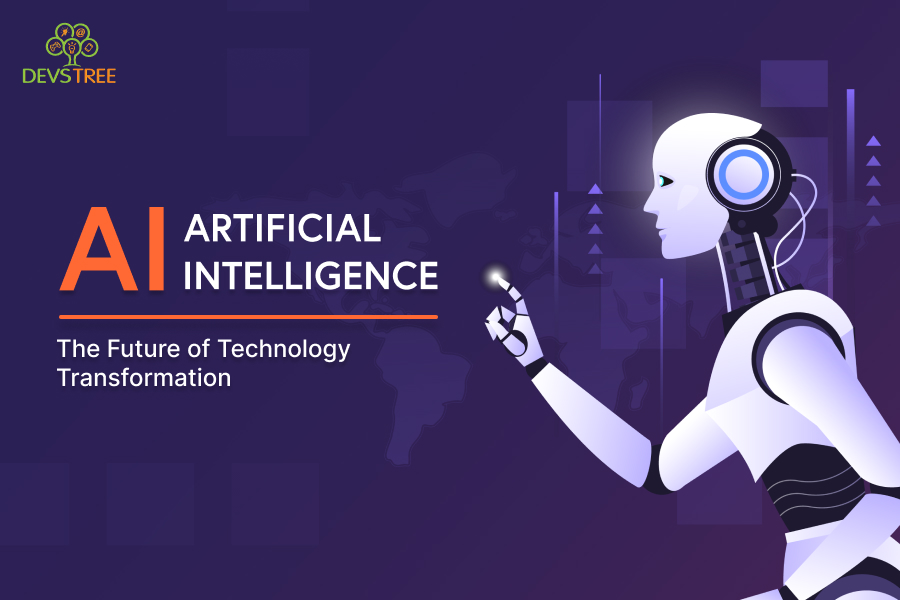- November 8, 2023
- by devstree
- Technology
- 1206 Views
- 2 Comments
With the modern world of technology, the artificial intelligence (AI) market has been expanding quickly over a while. The launch of innovative, new AI-powered services and solutions across multiple industries is proof that this pace is going to keep higher.
The well-known role of AI in analysis and prediction, which aids data scientists and businesses in making sense of the world and plotting their course appropriately, has given way to new and creative systems, such as DALL-E, that are creating completely new artefacts that have never been seen before.
However, why is this growth so exponential, and what impact will it have on the space in the upcoming year? The following major Artificial Intelligence Applications will appear in 2024:
Top 4 AI Trends in 2024:
The top spot will remain occupied by generative AI.
Generative AIs, such as ChatGPT and digital art generator (DALL-E), are popular because they are made to do more than just analyze data; they are meant to use it to generate content. Additionally, they make the process of producing content much simpler in a world where content is king.
The latest iteration of ChatGPT, GPT-4, was only available to Plus subscribers when it was released on March 16, 2023. Compared to GPT-3.5, its features are significantly more advanced, including multi-modal (text and image processing), internet access plugins, and more precise problem-solving.
The future of business will be shaped somewhat by deep learning
There is no random element to the board game diplomacy, where players must actively deal with one another to get the upper hand. To launch an attack, all you need is numerical dominance and the backing of another player.
Although it’s a difficult nut to crack for AI Applications, Meta’s AI Cicero defeated 90% of human competitors in a web diplomacy competition.
While AI Applications have always been great at strategic gaming, this was the first instance of an AI that could compete with humans on an even playing field and comprehend open-ended bargaining.
As generative AIs advance, it is probable that AIs like Cicero will also advance and find greater use in business, games, and even negotiations.
The ethics of AI will take supremacy.
AI still faces many difficult ethical and legal challenges, despite its enormous promise and demonstrated worth. The new implications can be detrimental or even dangerous, depending on how serious they are.
These frightening examples of deepfakes, biased algorithms, and deteriorating models over time serve as a stark reminder that regulatory frameworks need to change to keep up with the rapidly changing AI industry.
Businesses must use AI development services responsibly even if legal and regulatory frameworks are now being developed, and an AI development Bill of Rights is soon to be published.
Brands will need deep learning to navigate the cookieless future.
After Google stops using third-party cookies in 2024, data handling will prioritize privacy. Advertisers will thus no longer have access to many of their structured datasets, which will further reduce the utility of machine learning solutions.
Deep learning systems will be in a better position to handle enormous, unstructured information and allow marketers to keep showing relevant advertisements to customers while maintaining their privacy.
Bottom line:
Even though we’ve been speaking about it for a decade now, 2024 will see significant advancements in AI Application development. We will see innovative use cases for the enterprise and beyond with the commercialization of new goods and features, advancements in accessibility and affordability, and an emphasis on responsible behaviours.
Being in the AI space is exciting right now, and it will be interesting to watch how the sector develops over the course of the upcoming year.
